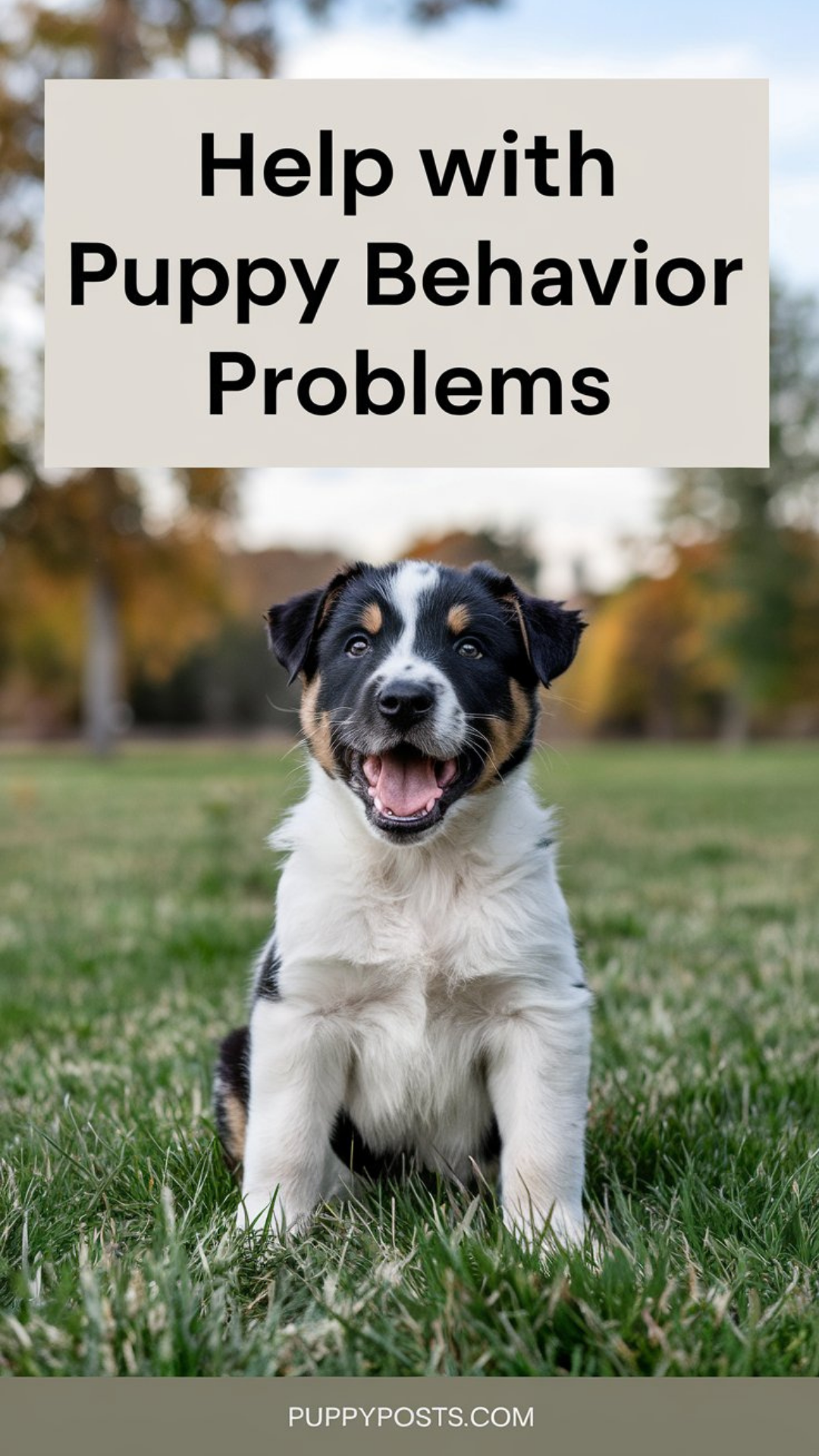Help with puppy behavior problems
As a veterinarian with ten years of experience and the founder of a sanctuary for stray dogs and cats in New Jersey, I’ve seen what happens when puppy behavior problems get ignored. Cute quirks at eight weeks turn into full-blown issues at eight months. You’re not “waiting it out”—you’re training bad habits if you don’t step in early.
Let me be clear: puppies aren’t born knowing how to behave. It’s your job to teach them. You don’t need to be harsh—but you do need to be firm, consistent, and a little tougher than that wagging tail might make you feel.

1. Stop Biting Before It Becomes a Problem
All puppies nip. They’re testing their limits, just like toddlers. But if you shrug it off as “just playing,” don’t be surprised when they bite harder at six months.
Here’s what to do:
- Yelp and freeze. Mimic what a littermate would do. Let out a sharp “Ow!” and stop all play. Walk away for 10–15 seconds.
- Redirect to a toy. Every single time. Let them chew—but not on you.
- Stay calm but consistent. Never yell, hit, or wave your hands. That just ramps them up more.
2. Curb the Jumping—It’s Not Cute at 60 Pounds
That little puppy bounce might seem harmless now, but when they’re knocking over your aunt or your toddler, it’s too late.
Train alternatives:
- Teach “sit” at greetings. No petting or eye contact unless their butt’s on the ground.
- Turn away. Don’t reward jumping with attention—positive or negative.
- Be consistent. One person letting it slide undoes your hard work.
3. Barking: Figure Out the “Why,” Then Fix It
Puppies bark—it’s communication. But if it’s nonstop, your neighbors won’t be the only ones losing patience.
Break it down:
- Boredom? Add more mental stimulation—puzzle toys, training games, scent work.
- Fear? Gradually expose them to the trigger (doorbell, strangers, dogs) with positive reinforcement.
- Demand barking? Don’t give in. Period. If they bark for food or attention, wait for quiet before rewarding.
4. Potty Training Requires a System
Accidents aren’t always the puppy’s fault. You need a routine. No guesswork. No free-roaming in the house too soon.
Stick to this plan:
- Out every 1–2 hours, and always after meals, naps, and play.
- Reward outside, not inside. Praise and treat immediately after they go—not once they’re back inside.
- Clean accidents with enzymatic cleaner. If it still smells like pee, they’ll go there again.
5. Chewing Everything? Your Dog’s Not Being “Bad”—They’re Teething
Chewing is natural—but your shoes aren’t fair game.
Redirect and supervise:
- Puppy-proof the house. If they can grab it, they will.
- Offer frozen teething toys or carrots. Soothes their gums and gives them something appropriate to destroy.
- Catch it in the act. Say “No,” take it away, hand them a toy, and praise when they chew the right thing.
6. Separation Anxiety Starts Early—Don’t Encourage It
If your puppy can’t be alone for five minutes without screaming or shredding the rug, it’s time to fix it. Now.
Start small:
- Practice leaving the room. No dramatic exits or returns.
- Use a crate or playpen. Make it a safe space, not a punishment.
- Leave toys or treat puzzles behind. Keep their brain occupied when you’re gone.
7. Crate Training Isn’t Cruel—It’s a Lifesaver
Too many people avoid crates because they feel bad. You’re not locking them up—you’re giving them structure and safety. A crate-trained dog handles vet visits, travel, and downtime without panic.
Make it work:
- Feed meals in the crate.
- Start with short sessions. Leave the door open at first, then gradually build up closed-door time.
- Never use it as punishment. It should be a den, not a jail cell.
8. Don’t “Wait It Out.” Train It Out.
Puppies don’t magically “grow out” of bad behavior. They grow into it. You have a window—maybe 4 to 6 months—to set the tone for the rest of their life.
Be proactive:
- Train every day. Even 5-minute sessions count.
- Socialize the right way. Controlled, calm introductions to people, dogs, and places—not chaos.
- Stay calm, but don’t let things slide. What you allow is what you teach.
Final Word
Puppy behavior problems are normal—but that doesn’t mean you ignore them. From biting to barking to bathroom messes, every issue has a solution. You just have to show up, stay consistent, and lead the way.
Take it from a Jersey vet who’s seen too many good dogs land in bad situations: train now, or pay later. Puppies aren’t broken—they’re learning. Make sure they’re learning the right things.
Be the guide they need. Stay calm. Stay firm. And don’t let that puppy face talk you out of discipline. They’ll thank you for it later.







